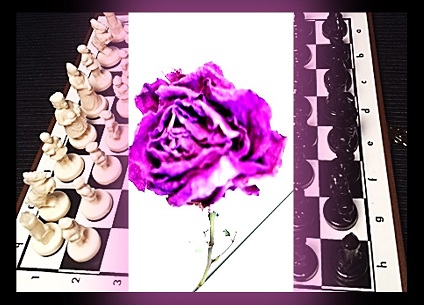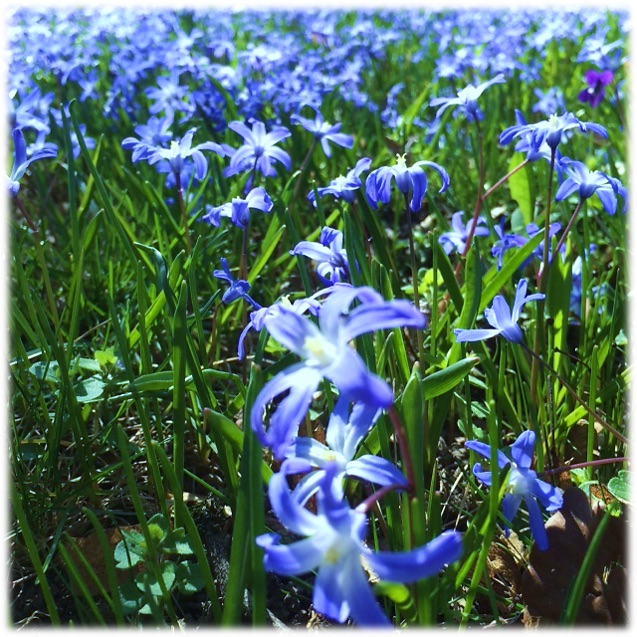Flower Power

“I’ ve got the power!”, that song by Snap is one of the first things that ironically come to my mind when I hear the word “power”.
Yes, this will be about power. Where exactly this article will take us I do not know yet. Frankly, I have not yet decided which messages I want to convey. The main reason for this is: Defining power and its implications does not come naturally to me.
Power is everywhere. Powerful emotions. Powerful images. The power of words. Powerful journeys. Power plays.
Life teaches us at early stages that power matters. Power exists even before we really start to exist. Only the quickest sperms will make it. Speed / destiny/ God’s will – is power, then. The survival of the fittest.
Power can express itself in a variety of ways. You have been the one holding power, being a gatekeeper. Maybe even abusing your power. Or you have been the one suffering from others’ execution of power. You might have been benefitting from the power held by others.
If you cannot buy the coffee in the morning, cannot give your children a birthday present or cannot afford taking your old parents to the doctor, you sense power in the toughest way. The power of unrestrained capitalism. The power of inequality. The power of status. Power at its worst.
Power is manifold and like most things in life, it has both positive and negative effects. Good. Getting a step closer to understanding power.
In the office, power finds expression, among others, through politics and hierarchies. A former boss of mine told me that business is all about moving players on the chessboard. He was not talking about which players needed to be moved. He was talking about playing office politics regardless of ethics. He was not interested in teaching about the good or bad, about what was “ok” and what was not. Values were not tied to this. It was all about maximizing and preserving one’s own power at any cost. Opportunism for the bad side, so to speak, to exert power only in your own selfish interest, not in the interest of a larger group that has a valuable purpose and goal.
At my most recent job, my colleague – let’s call him Fabio – taught me better. He and I agreed during our little philosophical talks that with every move you make, you have to first know which side you are on, which color is yours. What do I mean by that?
Life, of course, is not all black and white. And sometimes, there is no right and wrong.
However, there is something that is more “good” and something that is more “bad” in many situations in our lives. White, traditionally, would represent “The Good”, while black would be “The Bad”. You know this from Disney movies and fairy tales. Why do I talk about “good” and “bad”, “black” and “white”? (Obviously, the colours are by no means to be taken for racist connotations, please!)
Many do have an understanding of what is “OK” to do in business and in private, and what is “not ok”, such as only helping your own egoistic purposes of exerting power. Just today, I unintentionally had sent an email to a mailing list where I pointed out somebody’s mistake. I was so ashamed – I had forgotten to take the email list out of cc. I apologized to the colleague, letting her know it was not my intention to publicize her mistake and wrote another email to her boss to set things clear and positive.
If you have the privilege to live in a democracy, corrective measures try to ensure that power stays in balance and is not being abused. If you are bigger and older, you might abuse the younger and weaker, which – we all know – is not right. See, some of us do have – let’s call them – democratic or social values. Values to do “good”.
You need to preserve and protect those values at any stage in life, no matter what. We should boldly get those white players moving on that chessboard, in a strategically smart manner. You need to take action and move the figures on the board. My colleague Fabio and I agreed that opportunism is too often an action of the “bad side”, while the “good side” resigns to push boldly forward, instead too often acquiesces. Opportunism as the helping hand of power exertion, though, can indeed be a smart move to ensure that the team with good values wins (for once).
A question for you: Shall we play the game, in life and in business? If yes, playing for the black or white side on the chessboard? Schachmatt for whom?
There she stands in front of you. Oh boy.
Power in her red dress, and in her black suit, in shiny shoes, naked, seductive and tall, staring at you. Smiling at you. Whispering words into your ear. Being silent. Slipping into your dreams. Forming your worst nightmares. Being your best friend.
What does it take to make powerful decisions? To be powerful? How does one play the game? Can we express our own ways of power or do we have to follow the rules of the game that is being played by various actors? Is it powerful to be disruptive of existing power constellations, as a strategy to then gain power, to create new energies, new constellations? Is power defined by the rules of the game? Can we remember, which side we take on that chess board, if we get more and more powerful?

Some people enjoy holding power. Some might lose their initial values when doing so and turn into “black” players on the chessboard. Others feel uncomfortable exerting power. Some don’t seem to understand power (maybe my article would confuse them even more). Others will never learn how to become part of the power game, even though they desperately want to be.
They only end up as a victim of power plays. A question of habitus maybe. Oops, I did it again, talking about habitus means – again – talking about power.
Power is everywhere we go. Is she exclusive? Scary? Useful?
Power, no question, is a weapon.
Win or lose. How often it leaves a positive and how often a negative effect depends on how often an opportunist of either side has taken action. It might depend on whether we play alone or within a team. And it depends on our perceptions of what is “good” and what is “bad”.
Maybe, you gain power of yourself, your life, your future if you quit playing games according to the rules set out.
Most importantly: power is defined by actions. Actions create power. And power lies in the eyes of the beholder.
I am convinced: A lot more beauty is needed out there. Flowers need light and we all know that white is brighter than black. If we exert power for letting the white players, the good, win, if we take action strategically, then many colourful flowers could blossom on that chessboard.